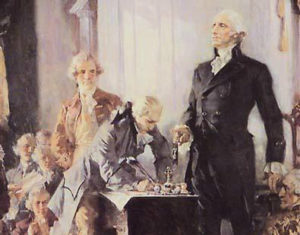Ups and Downs of an Artist’s Life
My artistic life was and is never predictable, so I was pleasantly surprised when (a very long time ago), I was hired to produce a dramatized version of the New Testament using multiple actors, with music and sound effects. The text would be the King James Version chosen by the executive producer, i.e. “The Money,” because the KJV was public domain and royalty free.
Because of my theatrical experience and classical training, “The Money” wanted me to read the role of Jesus. The KJV is similar in style and language to that of Shakespeare, so I was thrilled to have this opportunity. I embraced this project, heart and soul, but with no practical sense of what it meant to produce such a mammoth project.
When I rode in “The Money’s” Silver Cloud Rolls Royce to the lawyer’s office to draw up the contract, I regretted not taking that business class in college. The contract favored “The Money.” I was given a fixed budget, which meant, by the time I turned in the finished recording, I was paid the equivalent of a convict’s wages. But I did get to hire several actor friends, including my sister and my father, which was a supreme blessing.
“The Money” immediately began a direct-mail sales campaign. His hope was to get a big-time televangelist to endorse the product and pick our dramatized New Testament as a give-away for their fundraising appeals. When “The Money” got word from a leading televangelist of the day that he liked the product but could not stand the guy who played Jesus, “The Money” made an executive decision: re-record the Gospels with a new Jesus. I was replaced by the silky-smooth voice of a small-time radio host.
I only found out about the switcheroo because the radio host called to apologize. The televangelist had not liked the way I spoke the King’s English with such passion or dramatic intent. I guess Jesus used his silky-smooth voice when kicking the merchants out of the Temple, or sweating blood in Gethsemane as he prayed, or crying out to God while dying on the cross. So silky-smooth radio host beat out the classically trained actor.
Not long after that the big-time televangelist got his show canceled because of inappropriate behavior outside of his marriage bed. “The Money” had to pull the product and eat the capital outlay. Was there gloating? Was there a happy dance at this downfall? I hate to admit that I did take pleasure in seeing the mighty fall, but it quickly became a bitter pleasure. There was no vindication for me. There was no winner. We had all fallen victim to the age-old evil of overweening pride. Ouch.










